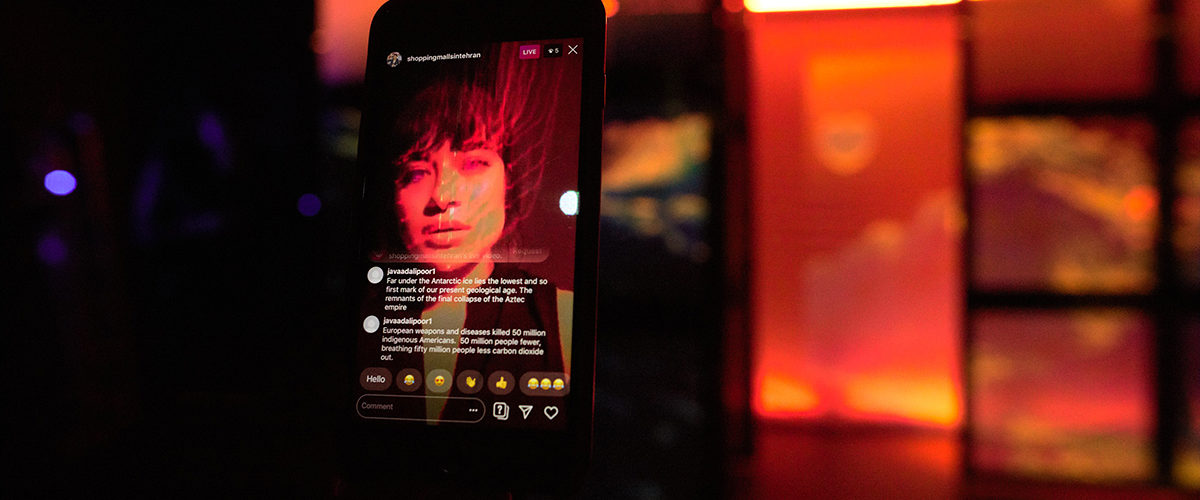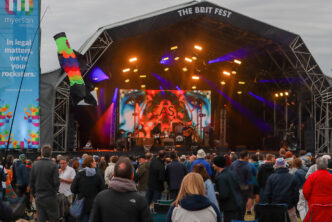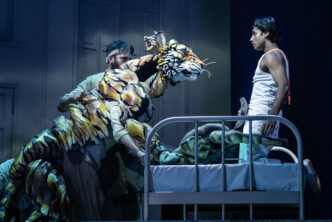Less of a drama and more an exercise in pop culture storytelling, Rick Kids: A History of Shopping Malls in Tehran is, in the words of writer/performer Javaad Alipoor, partly about ‘rich people acting like dicks.’ But these aren’t ordinary rich folk; they are the children of Iran’s upper class and bureaucratic elite.
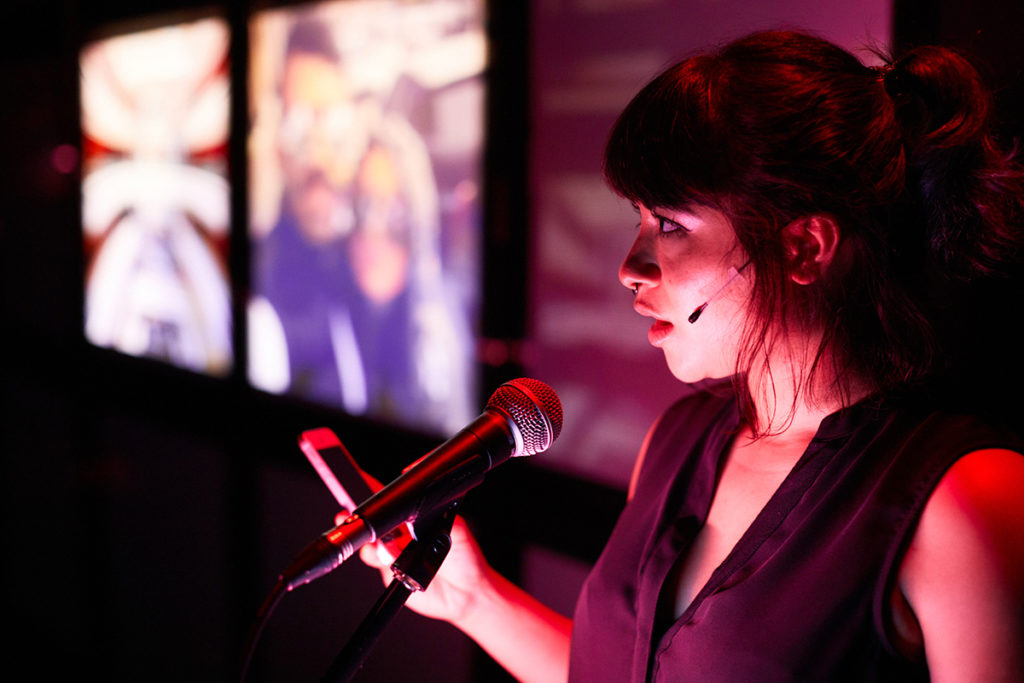
‘How a fatal car crash in Iran exposed growing anger towards the super-rich’, was a headline in the Guardian during 2015. The driver was 20 year old ‘Instagram celebrity’ Parivash Akbarzadeh, who went for a fast, crazy ride after attending a champagne and cocaine fuelled party. Within hours of her death, Akbarzadeh – whose Instagram account was mostly filled with pictures of her shopping and partying – had increased her followers to 40,000.
The car – a Porsche, natch – belonged to her friend, Mohammad Hossein Rabbani-Shirazi, who had bought it only two days before. What elevated this story to the front pages was the fact Rabbani-Shirazi was the grandson of Ayatollah Rabbani-Shirazi, who played a vital role in the 1979 Iranian revolution, and became an aid to Ayatollah Khomeini. Rabbani-Shirazi sat on the board which helped to draw up a new constitution for the country (in a bizarre twist to this story, he was killed in a car crash in 1982).
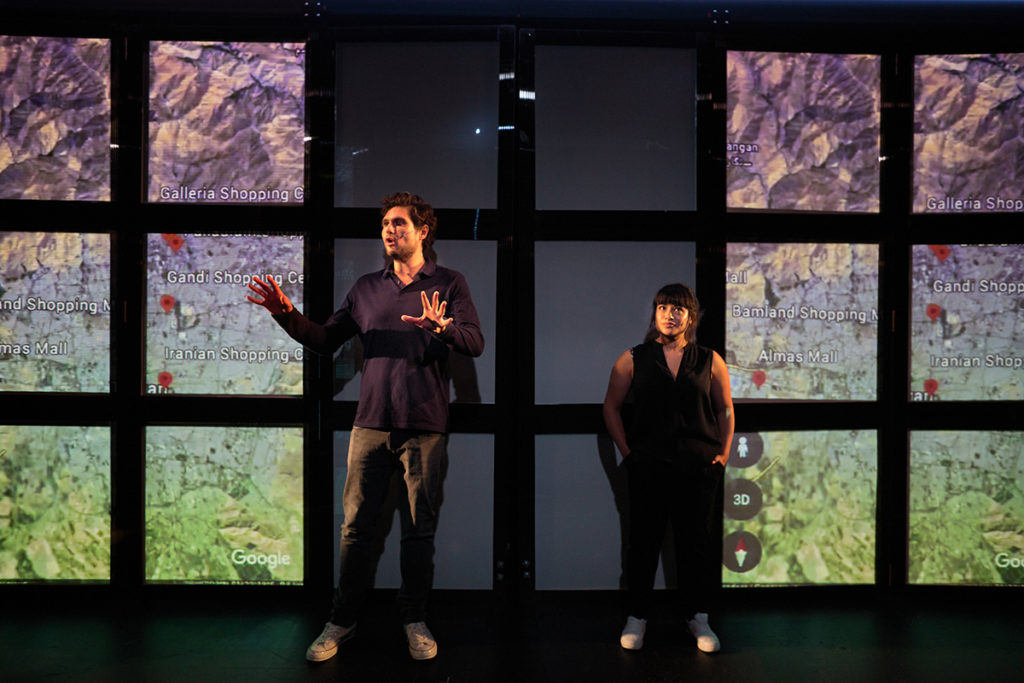
Aside from the tragedy of two wasted lives, many prominent Iranians were appalled by the glitzy, vacuous lifestyles of Akbarzadeh and her friend. Reformist Politician Mir Hossein Mousavi (who has been under house arrest for the last 8 years) said – ‘When the wealthy parade their luxury cars in front of the less fortunate, it constitutes an oppression of the working classes.’ He might be right; the Iranian working class always feel the sharp edge of Western sanctions. Cocooned by privilege, the stupid rich continue much as before. Given the political context, it’s easy to understand some of the comments posted to Akbarzadeh’s Instagram page in the days after her death: ‘You got what was coming to you’, being one of the milder ones.
Of course there’s a long tradition of wealthy people having arrogant, entitled children. Look at the ghastly Eric and Donald Trump Junior if you need proof. The man-baby son of Benjamin Netenyahu appears to serve no useful purpose; Nair Netenyahu doesn’t need to worry about money, so has built a career for himself as an on-line troll. Bellarmine Mugabe – youngest son of the late Robert Mugabe – notoriously filmed himself pouring champagne over an expensive watch, whilst his brother and friends partied in the background. It’s enough to make you want to heave.
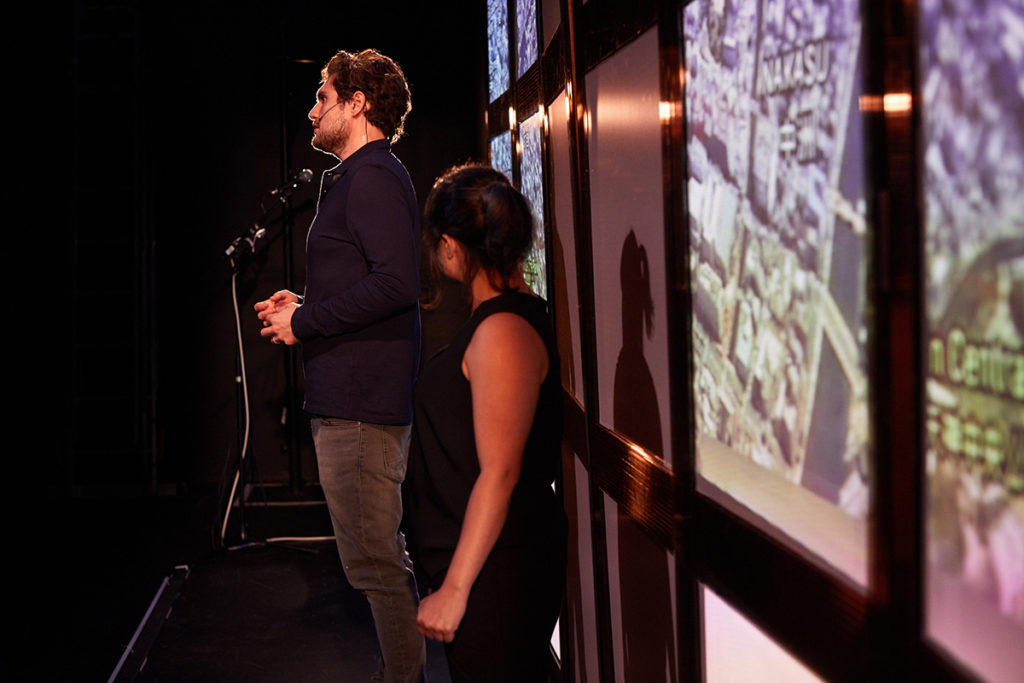
That clip is featured in Rich Kids: A History of Shopping Malls in Tehran. Peyvand Sadeghian and Javaad Alipoor forensically examine the life and death of Parivash Akbarzadeh and Mohammad Hossein Rabbani-Shirazi, whilst making all kinds of strange connections. They’re the only performers, narrating this tale of toxic materialism against a bank of TV screens. It’s a kaleidoscopic 60 minutes that is both fascinating and depressing, and lifts the curtain on a world with which most people will be unfamiliar. Who knew #Richkids was a bona fide hashtag? For these kids, hedonism and shopping are almost acts of rebellion; a disguised contempt for their parents and the country’s leaders.
In Tehran, the ancient world rubs up against the modern in an unholy, queasy alliance; ancient artefacts sit next to modern malls, and the contrast couldn’t be starker. So ubiquitous is the mall lifestyle (which brand is greater, asks Sadeghian, Nike or Gola?), there’s even an on-line world of virtual 80’s shopping; artfully constructed, imaginary emporiums where the viewer can peruse vintage brands, whilst ‘Africa’ by the group Toto plays on a background loop. These bizarre miniature worlds are mostly created by 18 year old boys: It’s nostalgia for people who perhaps wished they were older, lost souls looking for something – anything – to fill their emptiness (the phenomenon is known as ‘Mallwave’).
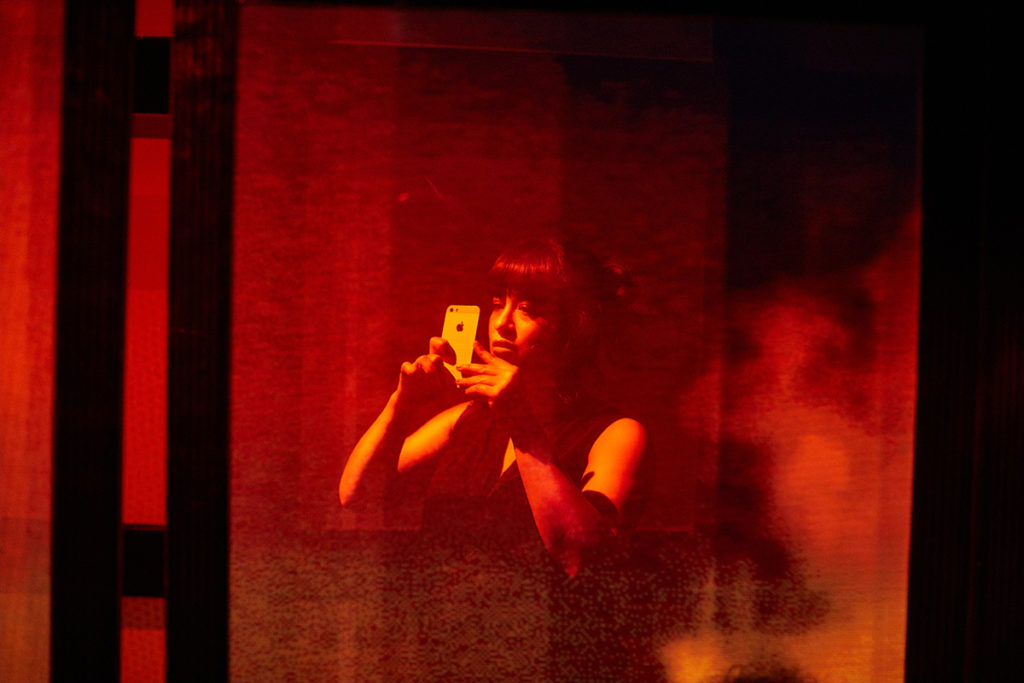
There’s an interactive element to this show, with a live Instagram feed. I spend too much time messing with my mobile phone, and don’t particularly want to use it in a theatre. It feels a bit gimmicky, though participation isn’t compulsory. In a world where the divide between rich and poor has never been greater, it’s very easy to hate the wealthy. Rich Kids the show is bold enough to look beyond the party boy/girl stereotypes: what it reveals is a culture of adult children with too much money, too much time but no real clue how to find meaning in the world. One emerges feeling empathy; it’s not their fault they ended up this way. Whilst Rich Kids offers no answers, it raises questions which deserve serious examination.
★ ★ ★ ★Javaad Alipoor & HOME presents Rich Kids: A History of Shopping Malls in Tehran at Home, Manchester from 23 October to 2 November 2019.

